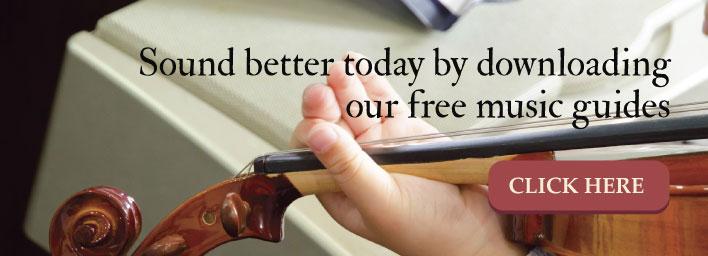How to Prepare for My Violin Audition

Getting ready to perform an audition can be a stressful time. It’s a part of human nature. Since your performance will decide your fate, high-levels of excitement and anxiety are completely normal and natural. However, with the proper preparation, you can reduce those pre-audition nerves to a manageable state and deliver a great violin performance that will knock the socks off of any sort of committee. This list of “how-to’s” outlines a few of the methods professionals use to prepare. By incorporating them into your regular practice routine, you can reduce the nervous tension that is so detrimental to a great audition and really display your unique talent to advantage.
Physical Considerations
Athletes understand the importance of maintaining physical strength and well-being in order to ensure their optimum performance. As a musician, the type of foods you eat and how much sleep you get before the big day have an impact on whether or not you’re able to give 100 percent. Spicy foods or splurging on a giant dinner may not be the best choice the night before your audition. Plus, you know yourself better than anyone, so if eating a big breakfast might make you feel woozy or bloated, eat a light meal that’s filled with protein, rather than a mammoth spread.
Moreover, you should pay close attention to the amount of sleep you get, both the night before an audition, and for at least a month in advance. Regular, sustained sleep benefits your health in a number of ways. By ensuring that you’ve been rested for at least a few days in advance, you’ll be more alert, focused, and in control.
The main thing to remember when making your physical preparations is to ensure that you maintain your normal routine as closely as possible.
Mental Preparation
Much of the preparation involved before any performance is mental. By visualizing the successful execution of every measure in your repertoire, you’re supporting your physical ability to accurately copy the perfect performance you’ve envisioned. A few tips include:
- See yourself delivering each note with excellent clarity, precision, and projection
- Mentally practice your pieces of music using the tempo that you will play during the audition. Many students make the mistake of trying to play their pieces too quickly to demonstrate their agility, but by slowing down the tempo, you will be able to really express each note and display to advantage.
- Every time that you catch yourself thinking of possible negative outcomes, mistakes or other demoralizing thoughts, deliberately replace that negativity with a positive visualization. Although it sounds simple, it really does make a difference in an actual performance.
Effective Practice
Obviously, you’ll want to practice, practice, practice the music that you will play, but to ensure that you get the most benefit from this, use these audition preparation tips:
- Practice starting at different places within your various pieces. Often a committee will ask you to start at a certain measure, and you don’t want to be caught unaware. And, as was mentioned, reduce your tempo slightly for each piece.
- Really focus on the beginnings. A strong start will often gloss over a slight slip up later.
- Play the instrument that you normally play. Some students think that a better quality instrument might make a difference, but don’t fall into this trap. You will sound best on the violin that you feel the most comfortable playing.
- Make a visit to your Luthier. If your violin has any slight separations or little issues that you’ve been neglecting, now is the time to ensure that it is in top condition. You don’t want to have to deal with a last-minute emergency situation in addition to the normal stress you feel.
- Practice in the clothes that you will wear for the audition. Many athletes hold to the maxim: “Nothing new on race day.” This means that you don’t want to have to deal with uncomfortable clothes that might distract or hinder your ability. So, if you’ve purchased a spanking new blouse with intricate beading for the audition, wear it while practicing at least five or six times to ensure that it won’t present a problem.
- Practice playing in lots of different settings. You may not know exactly how the audition will be set up, but if you can, visit the area beforehand to help aid your visualization process. If you aren’t able to visit, practice playing in places that have different acoustics and limitations. Being able to adapt to your audition surroundings will reduce your tension.
Although auditions are difficult, you can make yours go a little smoother with the right physical and mental preparations. Remember, it’s OK to make mistakes, your abilities will shine through if you focus on delivering a performance that displays your unique playing style, rather than perfection.

